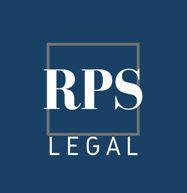It is mandatory for an entrepreneur who runs a business in Netherlands to register with the Dutch tax authorities and this is the field where our expert team of accountants in the Netherlands excels. The registration is done by filling a standard form which may be left in our responsibility. The form must contain the following information:
- • the address of the business and the name of the business;
- • the legal form under which the Dutch company operates;
- • personal data of the person (or persons) who is the founder of the company;
- • the main types of business activities that will be carried out under the Dutch company;
- • information on the VAT payer (if the company is liable to this tax).
The Netherlands has two types of taxpayers: resident taxpayers and foreign taxpayers. The resident taxpayers are individuals (natural persons) living in the Netherlands, bodies incorporated under the Dutch law (such as limited companies and private limited companies) or bodies established under a foreign law on running a business in the Netherlands.
They have to pay the income tax on their worldwide income in the Netherlands, which means that the tax is applicable on their foreign income. To avoid double taxation, the Dutch government has tax treaties signed with many countries. In the case there is no particular double tax treaty signed with a given jurisdiction, other rules of law concerning the taxation will apply. In the case of foreign taxpayers, both foreign companies and foreign individuals may be subject to tax payment in the Netherlands.
Companies have to pay corporation tax in the Netherlands as taxable income from a Dutch company, for example, an enterprise carried on by a permanent establishment situated in the Netherlands; the tax can also apply as taxable income from a substantial interest in a Dutch incorporated business.
The entrepreneurs must declare each year, in the period provided by the law, the net business profit in accordance to the income tax or corporation tax returns. When they are also employers, they must declare the payroll deductions. Each year, entrepreneurs have to declare their net business profit in their income tax or corporation tax returns.
As employers, they must also declare all Dutch payroll deductions. By the VAT returns, the entrepreneurs are obliged to charge and reclaim the VAT, as well as intra-Community supplies. The law provides that it is a particular type of procedure for each tax return. Companies must submit returns by electronically means for: income tax with operating profits, corporation tax, turnover tax and the payroll tax.
In most cases, payroll in the Netherlands implies more than just straightforward calculations. Our accountants, for example, leverage technology to reduce time-consuming administrative procedures for companies, thus helping companies with tax and employment regulations much easier. So, do not hesitate to get in touch with us for modern services.
Where can one register for the payment of Dutch taxes?
As a business developing commercial activities in the Netherlands, it is compulsory to register for taxation. Companies charging VAT on the Dutch territory, which are not incorporated in the Netherlands, are required to register with the Dutch Tax and Customs Administration. The registration with the institution starts by completing a form, through which the local authorities will determine the types of taxes that have to be paid from commercial operations in the Netherlands.
Once the document was submitted with the institution, the company will receive information on the types of tax obligations it has in a period of few weeks. The institution is also entitled to issue a VAT number, provided that it is necessary and if so, the applicant company will also receive a tax return standard document.
Further on, if the foreign company operating here will hire local workforce, it will be required to register for social security purposes. The procedure is completed through the same institution, prior to actually hiring local employees. Once the request was made, the company will receive a payroll tax number and the relevant documents associated with it (specific payroll forms). Our team of Dutch accountants can offer more information on additional tax requirements necessary for foreign businesses operating here.
What types of taxes are applicable to businesses in the Netherlands?
Companies incorporated in the Netherlands or foreign businesses operating here are liable for taxation for their commercial activities. Businesses are taxed on their profit and the tax system can vary based on the legal form of the company; our Dutch accounting firm can provide an extensive presentation on the tax obligations imposed to each Dutch company type. Some of the most common types of taxes available in the Netherlands are the following:
- • the value added tax (VAT) – it is imposed at the standard rate of 21%, but reduced rates are available for the sale of goods and services;
- • the income tax – a type of tax applicable to sole traders or to Dutch partnerships;
- • the corporate income tax – applicable to most of the company types in the Netherlands and it can also be available for Dutch foundations (in specific situations);
- • the dividend tax – applicable on the distribution of profits in form of dividends;
- • depending on the type of tax the company is liable, various types of tax returns must be submitted in a given period of time with the local tax authorities.
How can a company file a VAT return in the Netherlands?
As long as businesses operating here have received a VAT number, they are most likely required to file for VAT returns. Even if the company received a VAT number, the VAT return will not be necessary as long as the company is exempted from the payment of this tax.
As presented above, the standard VAT rate is of 21%, but certain categories of goods and services are exempted from this tax and thus, companies can qualify for this exemption if they provide the respective goods or services on the local market.
The VAT returns can be filed online, on the online platform of the Dutch Tax and Customs Administration, by the company’s representatives; at the same time, the procedure can be concluded through a tax representative who is authorized to act on behalf of the company. The online procedure can also be conducted by our Dutch accounting firm.
The legislation in the Netherlands allows three types of VAT returns. Thus, the documents can be submitted on monthly, quarterly or yearly basis. As a general rule, most of the companies prefer in practice to submit quarterly forms, but the VAT payers can also request to subscribe to one of the other two options. If so, the company’s representatives have to send a letter requesting the right to submit monthly or yearly VAT returns with the Tax and Customs Authority.
How can a foreign company claim the refund of VAT in the Netherlands?
A foreign company that purchased goods or services in the Netherlands that were used for the company’s benefit can claim a refund on the VAT charged here. Our Dutch accounting firm can explain the steps involved in the procedure and the types of documents needed in this case.
However, it is necessary to know that the procedure is done in accordance with the country of residence of the company (two main situations apply here – companies registered in the European Union and companies incorporated outside the Community). The application has to be made with the tax authorities in the country where the company resides, which will then send the request to the Dutch tax authorities.
The entrepreneur has also the obligation to file by electronic means the tax returns relating to intra-Community supplies and first-day notifications. The Tax Authority determines the amount of money a company has to pay or to receive back. A foreign business which is involved with Dutch VAT must, in certain situations, register with the Tax and Customs Administration in the Netherlands. Investors are invited to contact our accountants in the Netherlands for further advice regarding this subject.

